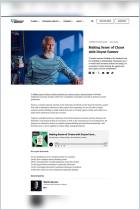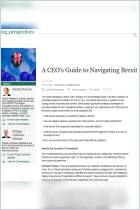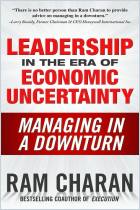Únase a getAbstract para acceder al resumen.

Únase a getAbstract para acceder al resumen.
Martin Reeves, David Rhodes, Christian Ketels and Kevin Whitaker
Advantage in Adversity
Winning the Next Downturn
Boston Consulting Group, 2019
¿De qué se trata?
Economic slowdowns provide opportunities for companies to gain competitive advantage.
Recommendation
The next economic downturn is coming. It’s just a question of when. Economists aren’t able to predict the timing and severity of an impending economic slowdown, but that shouldn’t prevent companies from preparing for one. In this report, experts from the Boston Consulting Group’s Henderson Institute provide practical, evidence-based recommendations for how businesses can not only survive economic downturns but come out stronger than before. Business leaders will appreciate the authors’ encouraging advice on how to turn adversity into a competitive advantage.
Summary
About the Authors
Martin Reeves, David Rhodes, Christian Ketels and Kevin Whitaker are managing directors and economists at the Boston Consulting Group’s Henderson Institute.
















































Comment on this summary